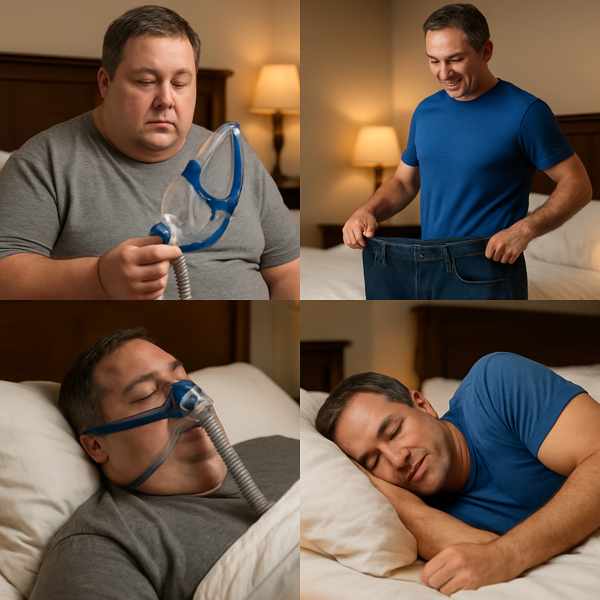How Weight Loss Affects Sleep Apnea
How Weight Loss Affects Sleep Apnea
Blog Article

Sleep apnea is a serious sleep disorder that affects breathing during rest.
While not always a complete cure, weight loss often reduces the severity of sleep apnea significantly.
Causes and Symptoms of Sleep Apnea
Sleep apnea occurs when breathing repeatedly stops and starts during sleep.
Common symptoms include:
- Loud snoring
- Interrupted breathing patterns
- Difficulty staying alert during the day
- Signs of disrupted oxygen flow
The Link Between Weight and Sleep Apnea
Fat deposits in the throat may narrow the airway, making it more likely to collapse.
Key risk factors include:
- High BMI (Body Mass Index)
- Fat around the neck and jawline
- Poor muscle tone in the throat
Does Losing Weight Help OSA?
Especially in individuals with mild to moderate OSA, lifestyle changes can be very effective.
Possible benefits of weight loss:
- Less airway obstruction
- Better oxygen flow
- More natural treatment options
- Feel more rested and alert
However, weight loss may not cure sleep apnea in all cases — especially if click here anatomical issues or severe OSA are present.
How Much Weight Loss Is Needed?
Studies show that losing just 10% of body weight can reduce OSA severity by up to 50%.
Tips:
- Focus on progress, not perfection
- Combine diet and exercise
- Track your sleep changes
Natural Weight Loss Tips for Better Sleep
Effective strategies:
- Limit sugar and processed carbs
- Boosts metabolism and burns fat
- Helps open up the airway naturally
- These relax throat muscles and worsen apnea
Working with a nutritionist or sleep specialist can provide more personalized support.
What to Do if Symptoms Persist
If symptoms continue, talk to your doctor about other options such as:
- Keeps airways open at night
- Custom-fitted mouthpieces to reposition jaw and tongue
- Surgery in severe cases
Conclusion
So, can weight loss cure sleep apnea? In many cases, it can improve the condition.
Talk to your healthcare provider, make informed decisions, and take proactive steps toward better health and rest. Report this page